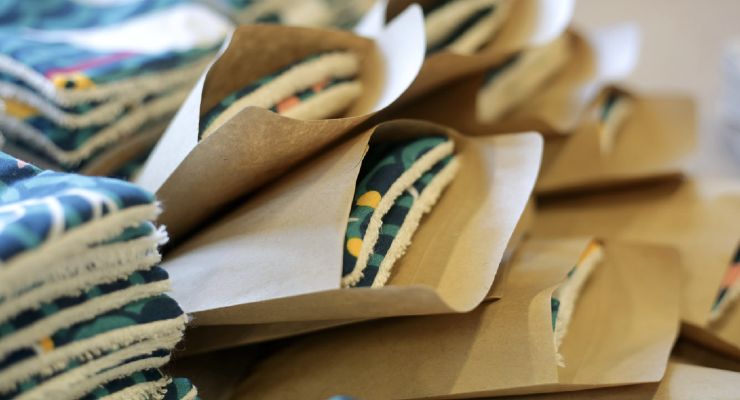Charles Sternberg, Assistant Editor04.06.21
Superga Beauty and Clarins Unlimited are bringing upcycling to the beauty sector with the launch of re-usable washable cotton makeup removal pads, produced using upcycled materials.
“Superga Beauty teams are proud to have developed this environmentally-friendly and upcycled gift in close collaboration with the Clarins Unlimited teams. We have reduced the environmental impact and are actively involved in bringing new impetus to the textile basin in the Hauts-de-France region,” explained Leslie Bréau Meniger, CEO of Superga Beauty.
After successful design and testing, the wipes were manufactured in Roubaix, the historical cradle of the textile industry. The product cleans eyes, face and neck. A quick and easy wipe, and a dab of cleansing milk or a few drops of lotion on the cloth are all that’s needed to protect skin and the planet.
For this specific project, Superga Beauty used dormant fabrics from the textile industry (primarily household linen) and manufactured a cotton cloth. This upcycled printed cotton product has been given a whole new life and no new production was required.
The environmental advantages include a total of 40% fewer CO2 emissions and a 50% reduction in water use.
“Superga Beauty teams are proud to have developed this environmentally-friendly and upcycled gift in close collaboration with the Clarins Unlimited teams. We have reduced the environmental impact and are actively involved in bringing new impetus to the textile basin in the Hauts-de-France region,” explained Leslie Bréau Meniger, CEO of Superga Beauty.
After successful design and testing, the wipes were manufactured in Roubaix, the historical cradle of the textile industry. The product cleans eyes, face and neck. A quick and easy wipe, and a dab of cleansing milk or a few drops of lotion on the cloth are all that’s needed to protect skin and the planet.
For this specific project, Superga Beauty used dormant fabrics from the textile industry (primarily household linen) and manufactured a cotton cloth. This upcycled printed cotton product has been given a whole new life and no new production was required.
The environmental advantages include a total of 40% fewer CO2 emissions and a 50% reduction in water use.




























